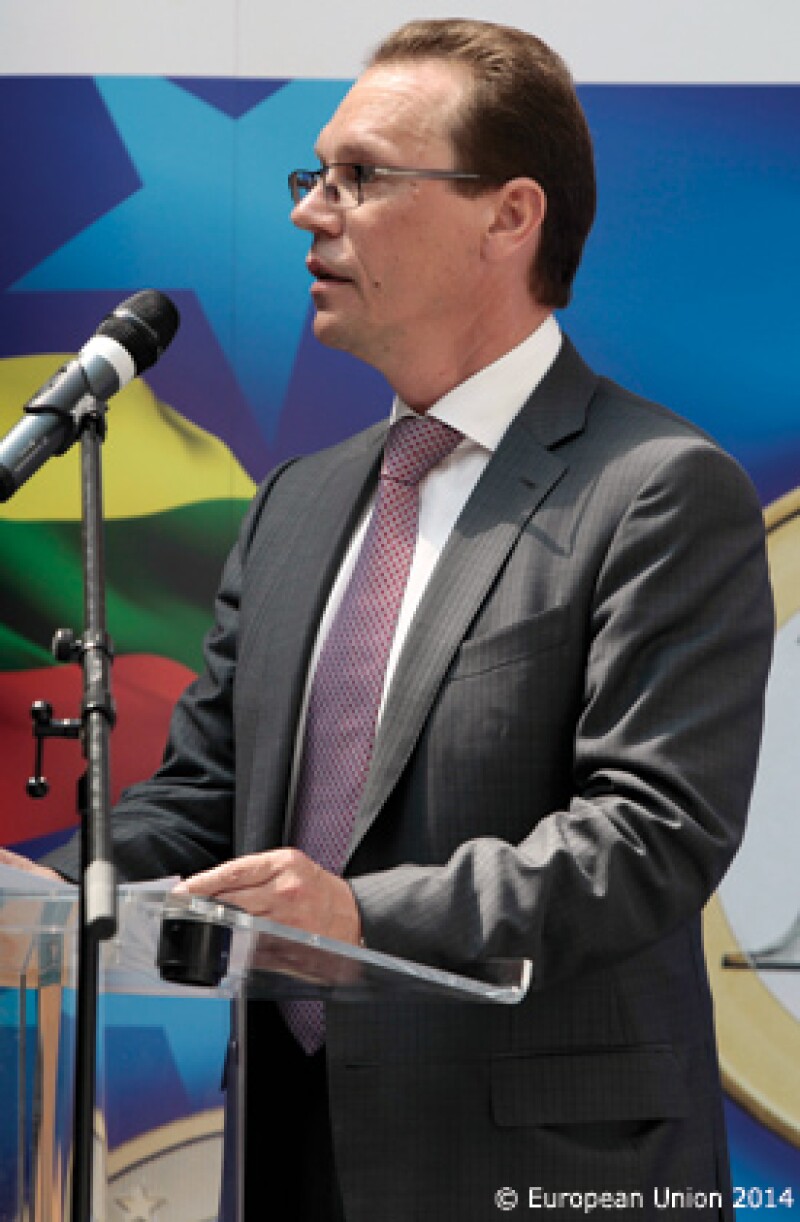
|
Algirdas Šemeta was also in the Global Tax 50 2013, 2012 and 2011 |
Algirdas Šemeta was the face of taxation at the European Commission (EC) during the period in which tax ballooned from being a footnote in financial publications to a major international political issue. He was replaced by Frenchman (and fellow Global Tax 50 2014 entrant) Pierre Moscovici, who took on the new role of European Commissioner of Economic and Financial Affairs, Taxation and Customs, on November 1, but leaves behind a legacy of combatting tax fraud and evasion, striving to make the tax system fairer, breaking down barriers to the single market and modernising the customs union.
One of the key pieces of work Šemeta chose to undertake was to update the Savings Tax Directive, which will be part of the legislative framework for automatic exchange of information within the EU.
"The fundamental reason for revising the Savings Tax Directive is to close loopholes which exist in the current legislation," he says. "The revised directive will be tighter, allowing for fairer and more effective taxation of savings income."
"It extends the scope of products to cover investment funds, pensions, insurance and innovative financial instruments, as well as capturing payments made through intermediary structures such as trusts and foundations."
"This will help prevent tax evaders from escaping the provisions of the legislation by channelling their money through untaxed structures outside its current scope," he adds.
During Šemeta's tenure, the legislation for an electronic pan-European customs environment was finalised, and the project – the Union Customs Code (UCC) was launched. In May this year, the Commission took on a work plan to have the UCC fully implemented by 2020.
Šemeta also set up a high-level expert group on taxation of the digital economy, which presented its findings in May.
Part of his philosophy has been to make sure that member states feel the responsibility and ability to react to tax abuses outside their own borders, with the assistance of the EU – to ensure that any instances of state aid can be quickly addressed.
"Last year the Commission sent requests to some member states for clarifications on their tax rulings, to make sure that companies do not receive undue, selective advantages," said the former Lithuanian finance minister. "We have also put a strong onus on member states themselves to challenge what they perceive to be unfair and to act decisively to prevent regimes that give way to abusive tax practices."
Šemeta, under José Manuel Barroso's premiership, helped create guidelines for member states such as shifting taxation away from labour and onto other tax bases such as property and the environment. He also proposed a review of the EU Energy Taxation Directive in 2011, which made a direct link between taxation and the CO2 and energy levels of different types of fuels.
The financial transaction tax (FTT) has been another area of activity for Šemeta. Eleven member states are now involved in the plans, which are going ahead under enhanced cooperation having overcome a legal challenge from the UK. The FTT has one of the highest public approval ratings of any tax mooted by the EU.
"This is an initiative which has the strong support of citizens of the 11 participating member states – 75% said they were strongly in favour of the FTT in a recent survey," he said. "The Commission has done everything it can to support negotiations, and will continue to do so while respecting the rights of non-participating member states."
Another key Šemeta policy was the standardised VAT declaration so that companies could fill in a single VAT declaration for all of their EU transactions – an initiative which is estimated to save €15 billion ($18.5 billion) every year.
"I am pleased with the pace of our progress in reforming the VAT system, as it is right on schedule," he said. "Meanwhile, we are working intensively to prepare businesses for the entry into force of the mini one-stop shop in 2015, which will make life much easier for businesses selling e-services, broadcasting and telecommunication services cross-border."
The Global Tax 50 2014 |
||
|---|---|---|
| Gold tier (ranked in order of influence) 1. Jean-Claude Juncker 2. Pascal Saint-Amans 3. Donato Raponi 4. ICIJ 5. Jacob Lew 6. George Osborne 7. Jun Wang 8. Inverting pharmaceuticals 9. Rished Bade 10. Will Morris Silver tier (in alphabetic order) Joaquín Almunia • Apple • Justice Patrick Boyle • CTPA • Joe Hockey • IMF • Arun Jaitley • Marius Kohl • Tizhong Liao • Kosie Louw • Pierre Moscovici • Michael Noonan • Wolfgang Schäuble • Algirdas Šemeta • Robert Stack Bronze tier (in alphabetic order) Shinzo Abe • Alberto Arenas • Piet Battiau • Monica Bhatia • Bitcoin • Bono • Warren Buffett • ECJ Translators • Eurodad • Hungarian protestors • Indian Special Investigation Team (SIT) • Chris Jordan • Armando Lara Yaffar • McKesson • Patrick Odier • OECD printing facilities • Pier Carlo Padoan • Mariano Rajoy • Najib Razak • Alex Salmond • Skandia • Tax Justice Network • Edward Troup • Margrethe Vestager • Heinz Zourek |
||









